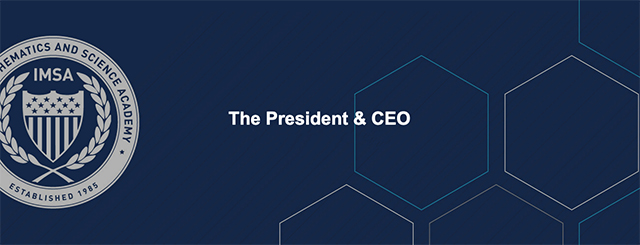
Publications & Research
Document Type
Conference Paper/Presentation
Publication Date
7-2018
Keywords
Diversity, STEM, Diversifying STEM, Equity, racial inequity
Abstract
According to the National Science Foundation, “the U.S. STEM workforce must be considered in the context of an expanding and vibrant global scientific and technological enterprise” (2014). “The National Academy of Sciences further suggests that, without the participation of individuals of all races and genders, the increasing demand for workers in STEM fields will not be met, potentially compromising the position of the United States as a global leader”. The stark reality is that there are a disproportionate number of Blacks and Latinos who lack the access and exposure to become STEM-literate. In order for the U.S. to remain a global STEM leader, an intricate look at STEM inequity on a national scale must occur and diversifying the STEM education to career pathway must be a priority.
The Illinois Mathematics and Science Academy sought to gain a better understanding of how to diversify this STEM education to career pathway. Thus, a study was conducted on the motivation of Black and Latino students to engage in STEM as well as two Diversifying STEM Think Tanks held to understand and address the racial STEM divide. The racial inequities in STEM were examined, strategies to address these inequities were discussed, and factors that motivate Black and Latino STEM engagement were identified.
From the perspectives of 415 STEM Stakeholders (students, parents, professionals, and educators), the D-STEM Equity Model to diversify the STEM Education to Career Pathway with national implications and global scalability, was developed. This model suggests “diversifying STEM policies” need to be developed that mandate funding for racially-based collaborative STEM initiatives to be implemented, that work towards achieving equity by addressing the identified problems collectively and integrating factors of Black and Latino student STEM motivation into STEM programming as well as encourage culturally responsive training for state/national teacher certification and current STEM educators.
Recommended Citation
Coleman, Adrienne, "D-STEM Equity Model: Diversifying the STEM Education to Career Pathway!!!" (2018). Publications & Research. 37.
https://digitalcommons.imsa.edu/pres_pr/37
Included in
Bilingual, Multilingual, and Multicultural Education Commons, Public Administration Commons, Public Policy Commons, Race and Ethnicity Commons, Urban Education Commons, Urban Studies Commons


Comments
Presented at the 2nd Annual International Symposium on the Future of STEAM (Sciences, Technology, Engineering, Arts & Mathematics) Education
23-26 July 2018, Athens, Greece